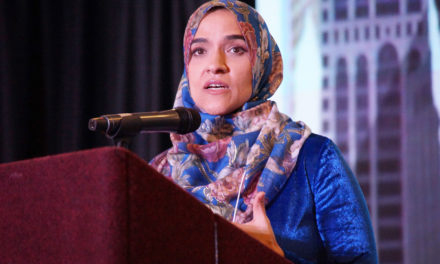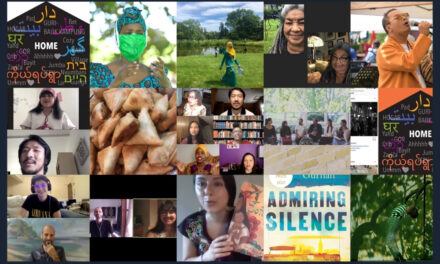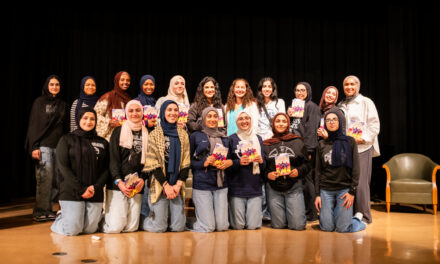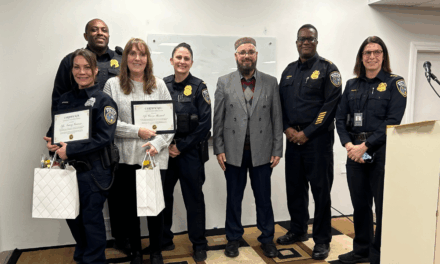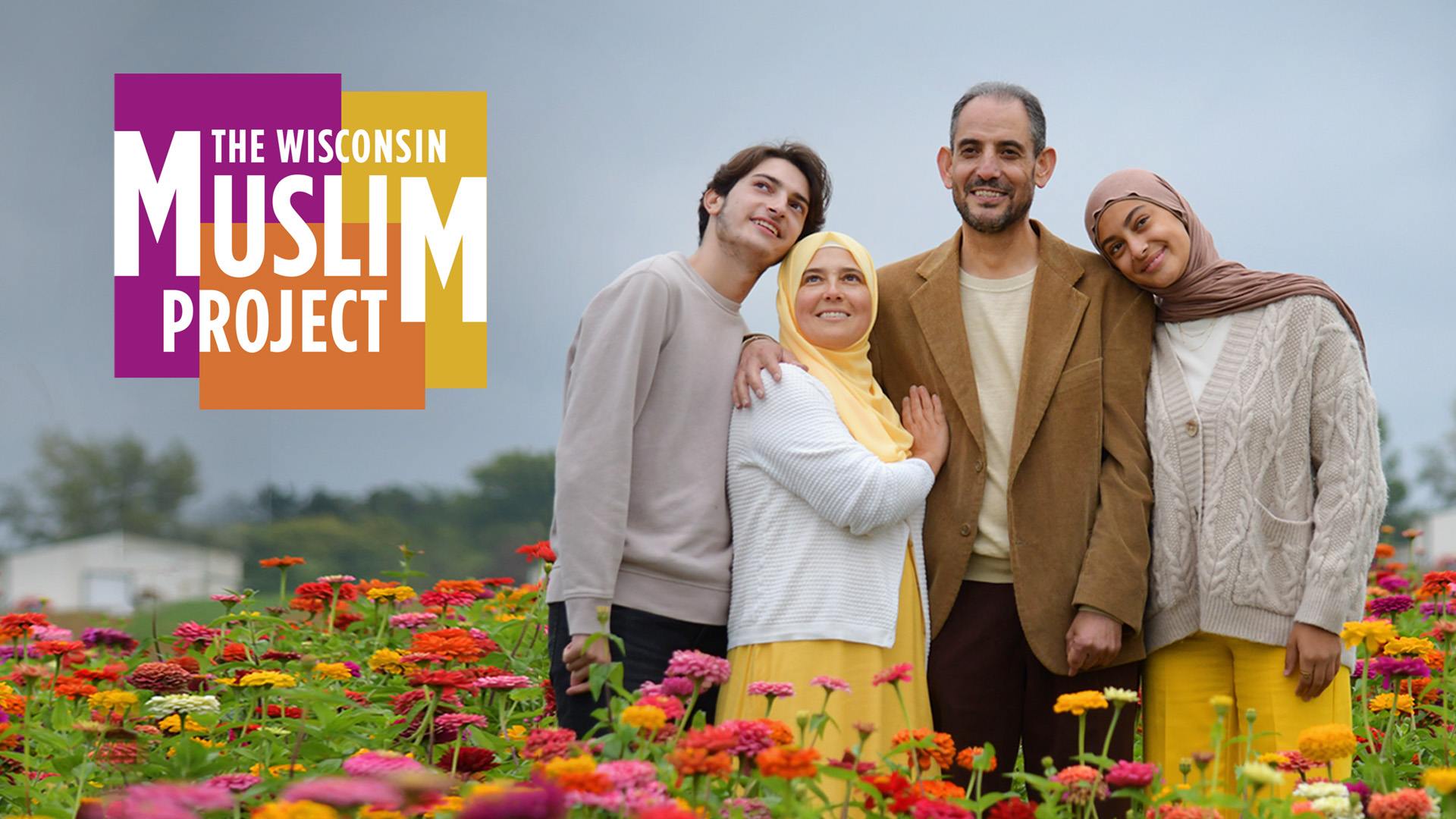
Photo credit: Lila Aryan, courtesy of PBS Wisconsin
Milwaukee photographer Lila Aryan captured images of Nariman Manasrah (second from left) and her family in Fond du Lac, one of 16 families she photographed for The Wisconsin Muslim Project’s online gallery.
Barron’s first Somali-born city council member, a mosque director helping curb hunger in Milwaukee, a University of Wisconsin-Madison law professor engaging young people in civics, founders of a Muslim art collective in Milwaukee and Fox Valley’s growing Muslim community—these Wisconsin Muslims are featured in an all-new PBS Wisconsin special that premieres Thursday.
Wisconsin Life: The Wisconsin Muslim Project airs at 8 p.m. Thursday, April 20, on PBS Wisconsin. It will also be available for on-demand streaming at pbswisconsin.org and in the free PBS App on all streaming platforms, digital devices and Smart TVs beginning Thursday. (Update: The entire project may now be seen here.)
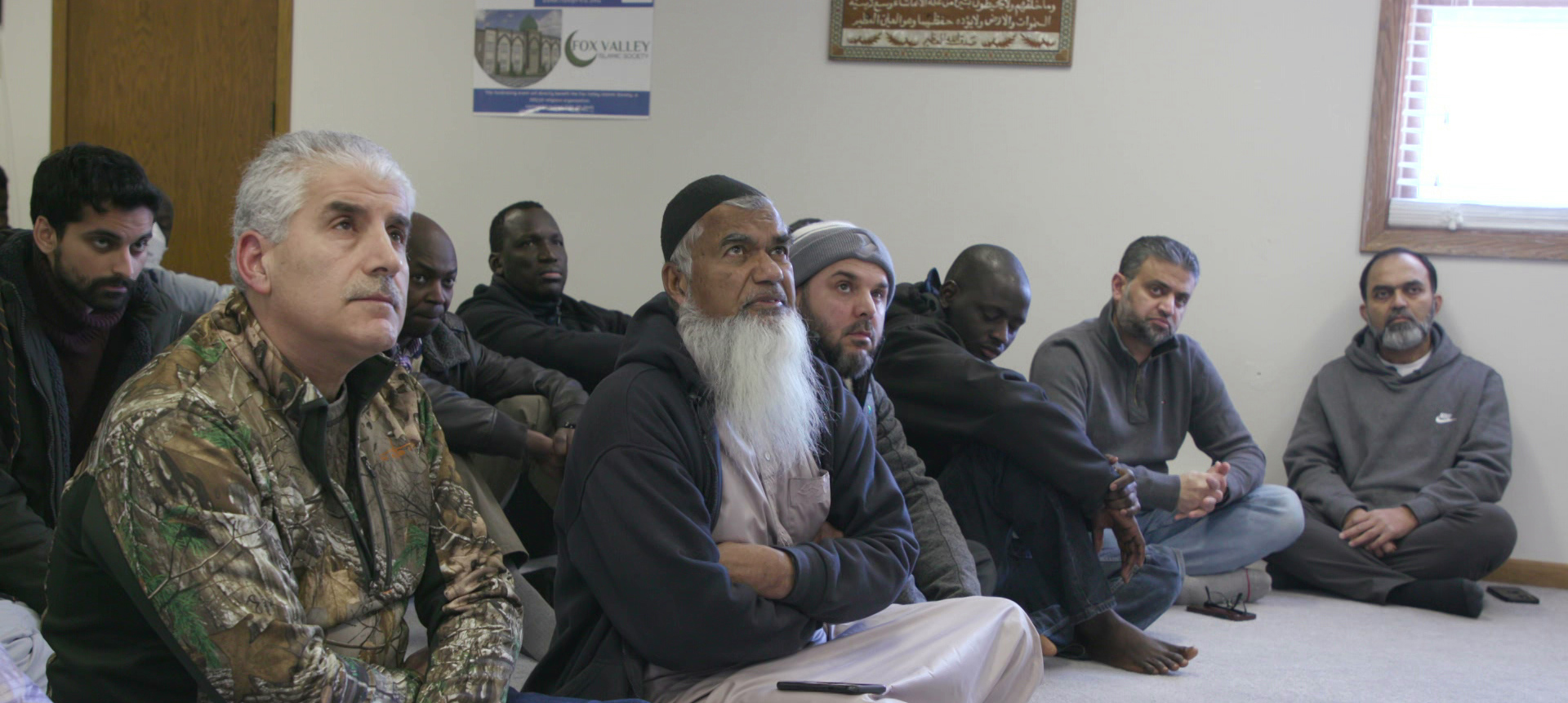
Fox Valley Islamic Society, believed to be the first community of Muslims in Northeast Wisconsin, has grown from about 10 families in 1970 to more than 100 families today.
Host Angela Fitzgerald takes her audience to the Fox Valley Islamic Society in Neenah to explore its growing Muslim community. She asks about Muslims’ beliefs and practices, giving the audience a general understanding of the faith.
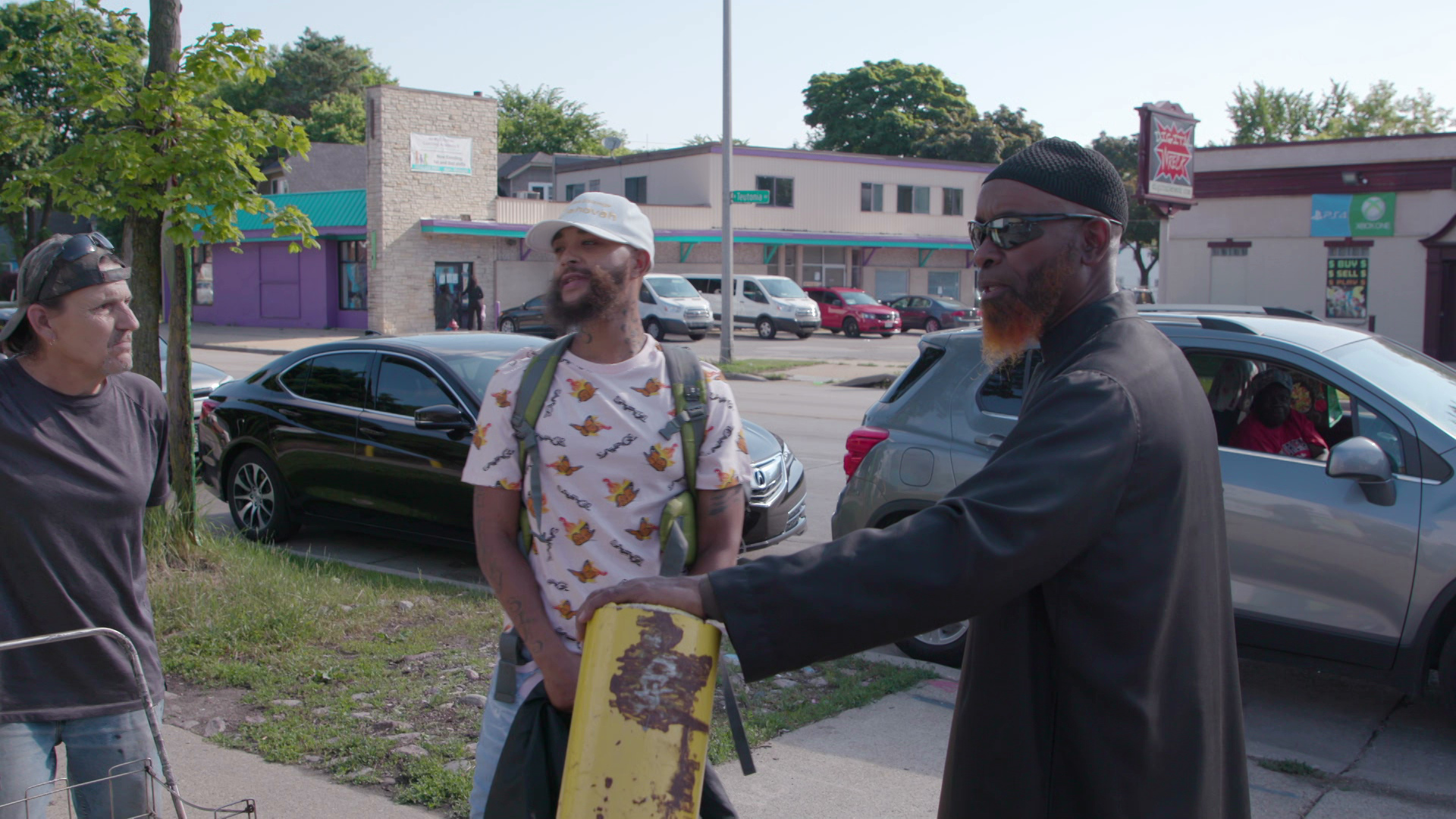
Milwaukee Islamic Da’wah Center executive director Will Perry (right) says the center’s food pantry distributes more than 10,000 pounds of food a week in North Milwaukee.
In Milwaukee, she introduces Will Perry, executive director of Milwaukee’s Islamic Da’wah Center, an organization that serves its north Milwaukee neighborhood with a food pantry and a variety of services. Its Ibrahim House provides living space and reentry programs for people leaving incarceration.
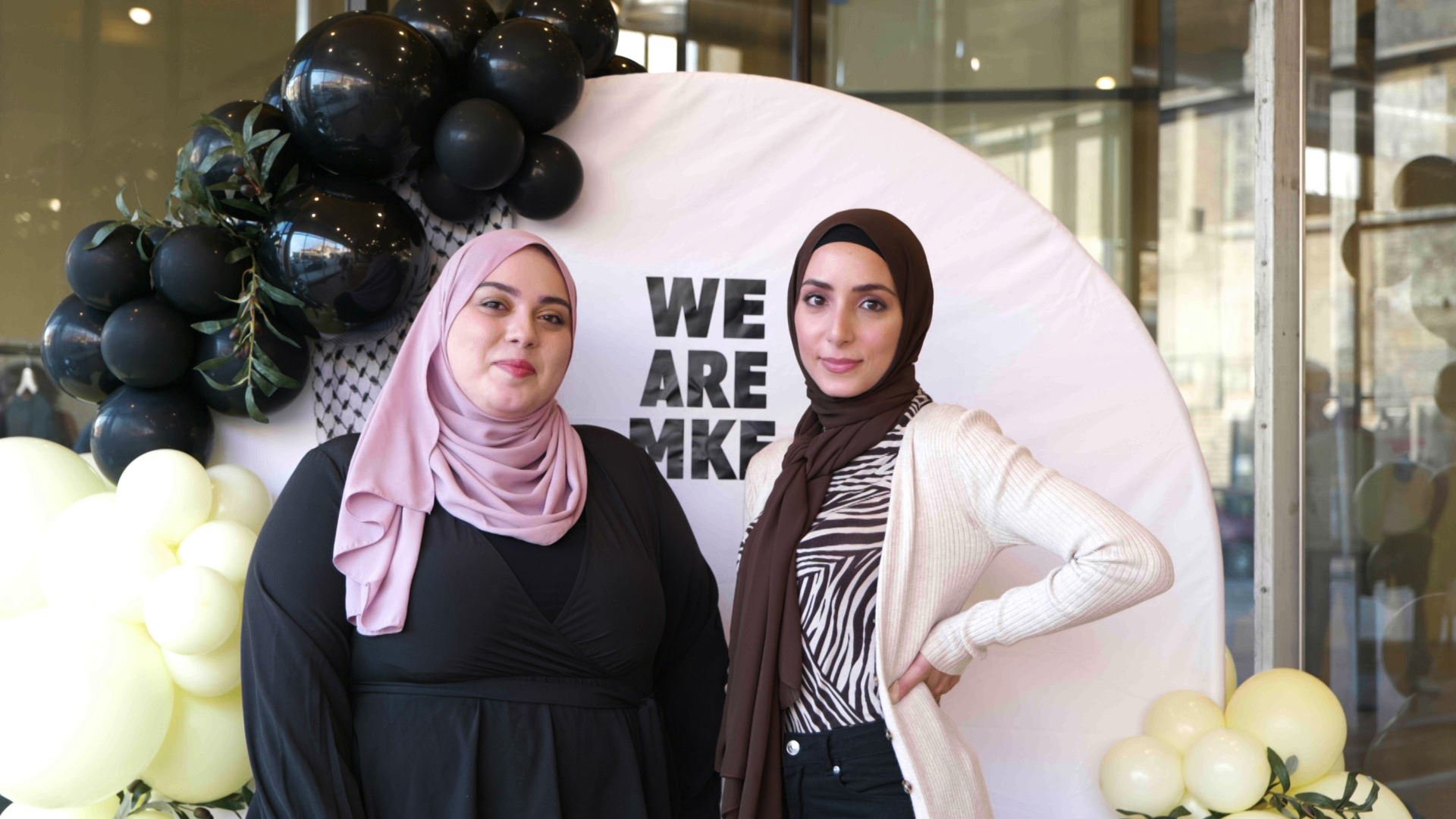
Nayfa Naji (left) and Amal Azzam (right), of Milwaukee, founded Fanana Banana in 2019 to create a place for Muslim artists to showcase their work.
Fitzgerald also interviews Amal Azzam and Nayfa Naji, founders of Fanana Banana, a Muslim art collective in Milwaukee that brings new voices into the spotlight.
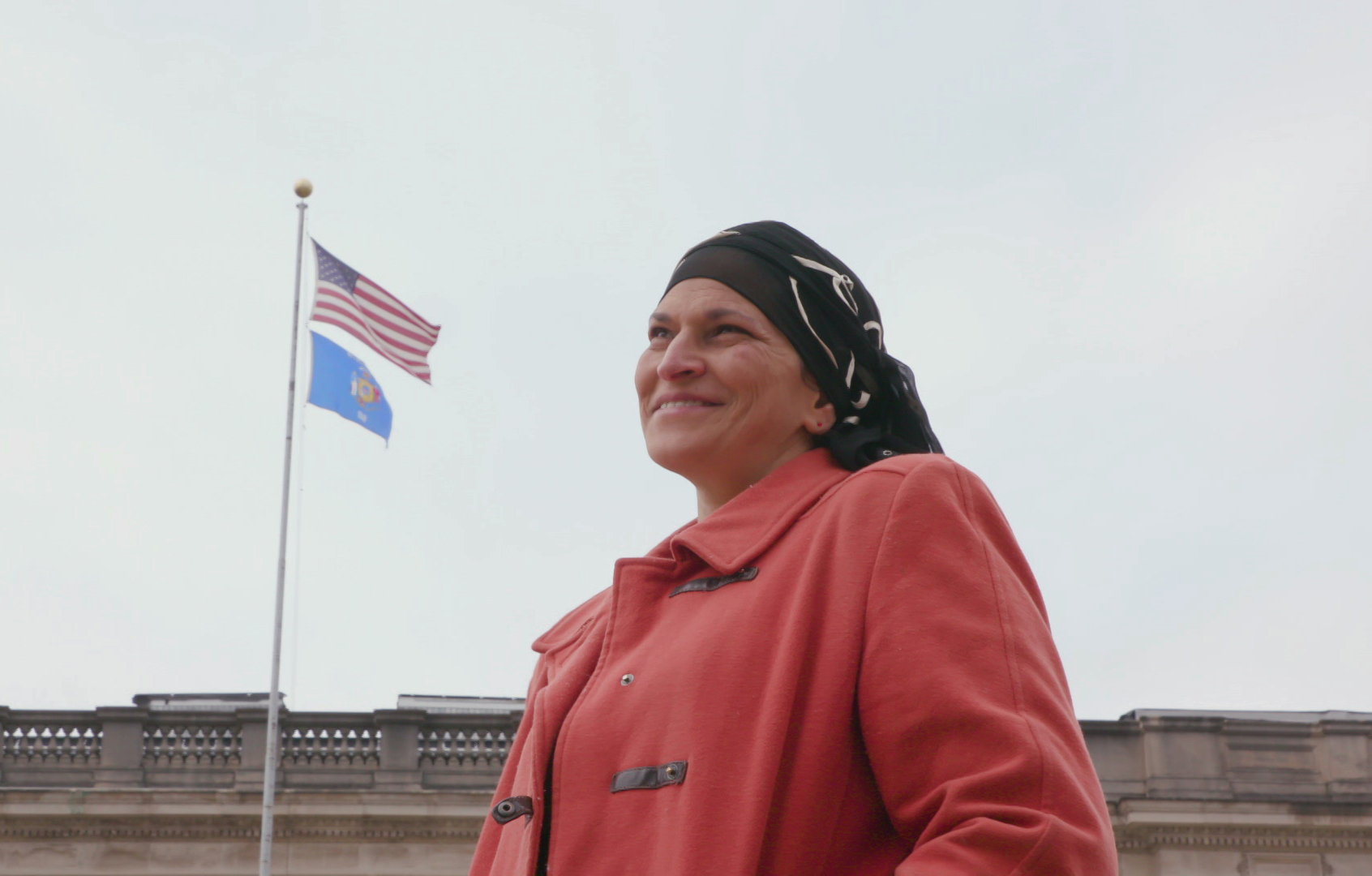
Professor Asifa Quraishi-Landes teaches law at the University of Wisconsin-Madison. She has degrees from Harvard Law School, Columbia Law School, University of California-Davis and UC-Berkeley.
Fitzgerald goes to Madison to meet Asifa Quraishi-Landes, a University of Wisconsin law professor who encourages American Muslims to “help the greater good of the country.” Quraishi-Landes helps run the Muslim Public Service Network, a national initiative started by her parents that aims to engage young Muslim Americans in policymaking and civic life.
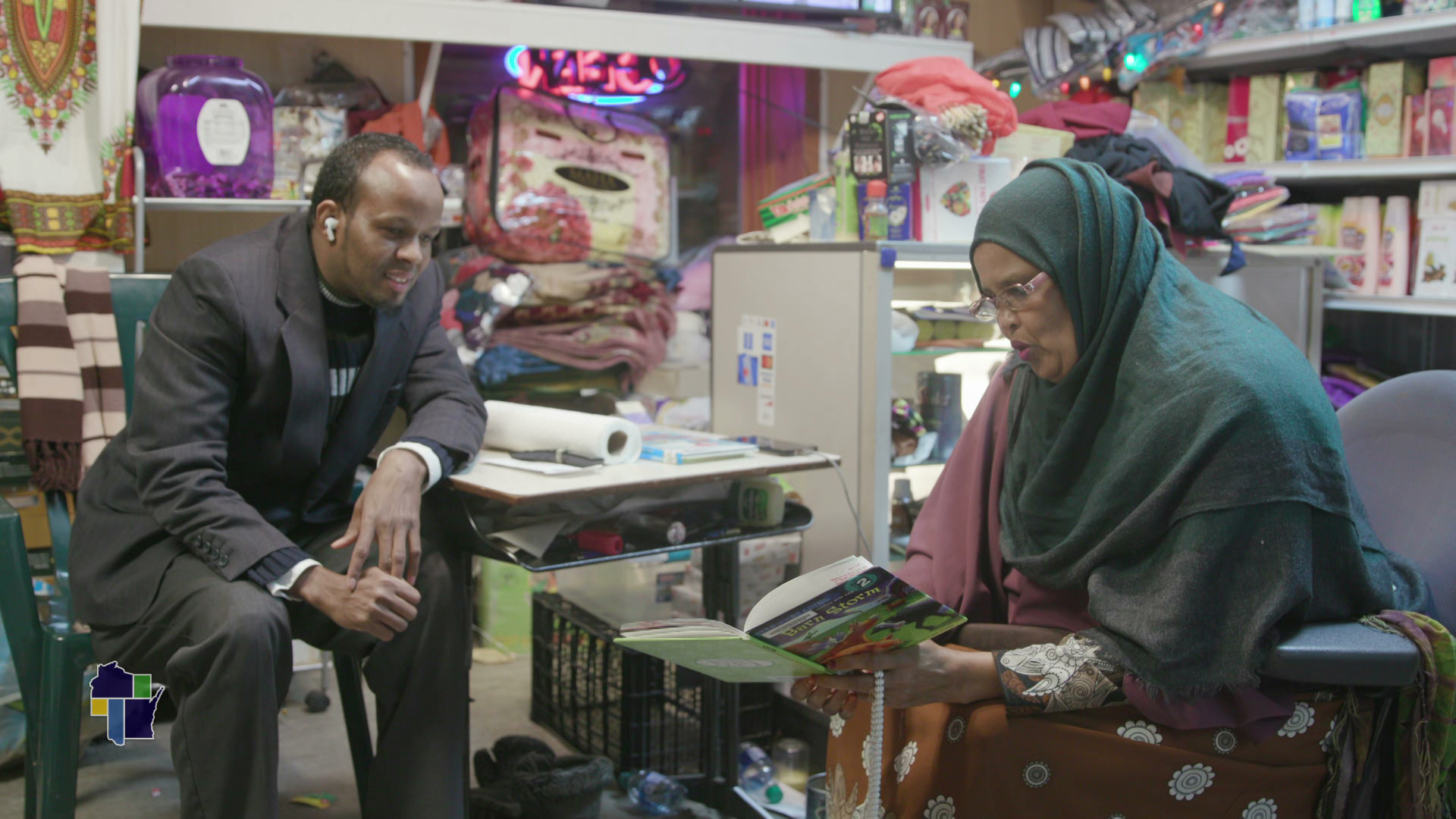
Isaak Mohamed (left) is believed to be Wisconsin’s first Somali elected official.
In Barron, we meet Isaak Mohamed, a Somali refugee who has been in Wisconsin since childhood. He works for the Barron Area School District as its Somali District liaison. Mohamed was elected in 2022 to serve on the Barron City Council, the first Somali in the state to win a local election.
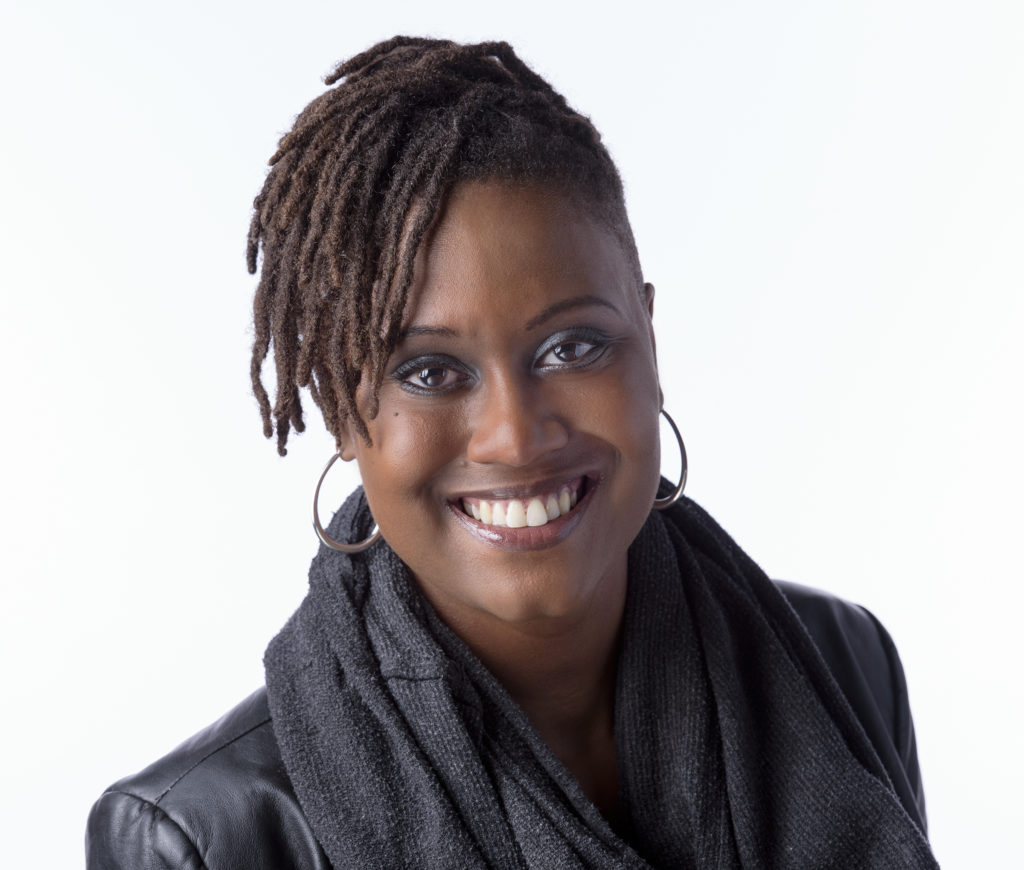
Wisconsin Life host Angela Fitzgerald
“Working on this Wisconsin Life special showed me the rich diversity that exists in the Muslim community in Wisconsin,” host Fitzgerald told the Wisconsin Muslim Journal. “There are so many different countries of origin, as well as points of entry into the Muslim faith that brings a uniqueness to the Muslim perspective in our state. That realization was surprising to me and was interesting to learn about.
“I also appreciated hearing that despite the challenges and stigmas that the community faces, they have been embraced by the broader community and are continuously providing educational opportunities to help others learn about the Muslim faith.”
The PBS Wisconsin special is part of the larger Wisconsin Muslim Project, a collaboration between PBS Wisconsin and two Wisconsin-based partner organizations: Milwaukee Muslim Women’s Coalition and We Are Many – United Against Hate. The multi-faceted project also includes an animated biography of Mahmoud Atta, a key figure in the building of Milwaukee’s Muslim community, with accompanying educational materials for third-sixth grade students and educators, and a series of community-building events launching April 29. They include a traveling photography exhibit of the work of Milwaukee photographer Lila Aryan, which offers an intimate look into the contemporary lives of 16 Muslim Wisconsinites and their families.
The Wisconsin Muslim Project “aims to stimulate connections between Wisconsin’s Muslim and non-Muslim populations, and encourage us to obtain greater knowledge about, empathy for, and appreciation of one another,” a PBS Wisconsin press release states. It is funded by a Doris Duke Foundation Building Bridges grant, which “supports national efforts, working with U.S. Muslims, to increase mutual understanding and well-being among diverse populations for the benefit of building stronger, inclusive communities.”
Behind the scenes
Wisconsin Life, an award-winning PBS Wisconsin and Wisconsin Public Radio collaborative program, now in its 10th season, celebrates Wisconsin’s people and places. For Thursday’s special, producers Trevor Keller, Emily Julka, Ali Khan and Kelly Saran spent more than a year traversing the state to meet Wisconsin’s Muslims and listen to their stories.
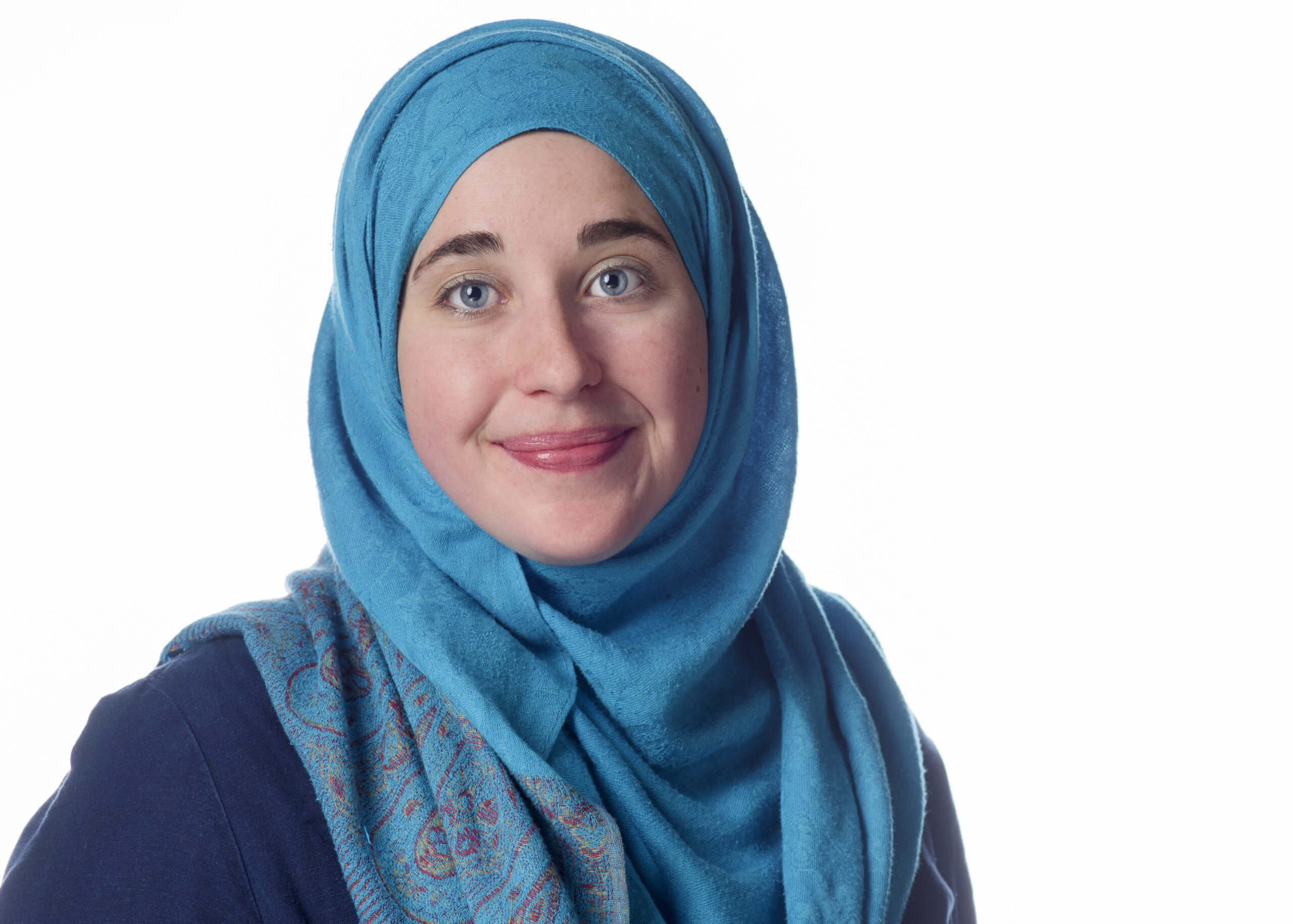
Wisconsin Life producer Kelly Saran
Wisconsin Muslim Journal recently interviewed Wisconsin Life producer Kelly Saran, who produced the segment on Barron City Council member Isaak Mohamed. Saran is a Muslim from Waukesha. Here are paraphrased highlights of the conversation:
How did PBS Wisconsin producers choose the Muslims featured in the special?
We brought in an advisory committee from our community partners: Janan Najeeb from the Milwaukee Muslim Women’s Coalition and Masood Akhtar and Charles Cohen from United Against Hate. We asked if they knew people who might make great stories and about stories of the community as well.
It is important to show representation of the Muslim community, so diversity came up—not only ethnic diversity, but also diversity of backgrounds and life experiences. We wanted to go beyond the singular image of Muslims that often appears in Western media, that Muslims are Arabs. We wanted to show the wide variety, the immigrants from around the world and the converts. We also knew many Muslims are very civically engaged and community-minded. We wanted to find people who showed commitment to the larger community. That was easy; we kept running into them.
How long have you been working on this project?
We started this project about two years ago, as soon as we learned we won the grant. After the initial planning, we started producing the stories about a year and a half ago. It has been ongoing. We didn’t just go out one weekend and shoot everything. What I love about PBS is that we have the luxury of taking the time to do good storytelling.
As a Wisconsin Muslim yourself, how do you feel about this Wisconsin Life special?
I feel really proud of this project. I’m proud to lead a project where Muslims can be highlighted in an authentic way. To be a Muslim shepherding this project is a real honor.
What did you learn from doing this project?
It helped me tap into how widespread the Muslim community is in Wisconsin, from head to toe across the state.
I also think this project gave us an opportunity to show Wisconsin’s Muslims we can be trusted to tell their stories. On Wisconsin Life, Muslims will see an authentic representation of Muslim life and stories of people here in our state doing great things.
I work with a talented team of producers and a great host, videographers, sound recorders, editors and more. We have quite a large team. We’ve built trust that helps us tell stories in ways that are ethical and well done. When these guys go to a mosque, even if they have never been in one before, they know how to show respect and ask the right questions. They do it every day with a variety of underrepresented groups, faith groups, cultural groups and ethnic groups.
Was it important to have Muslims on the production team?
For this project, we brought in Madison-based freelancer Ali Khan, a Muslim. It helps build that comfort level with the people we wanted to interview. However, the rest of our team knows how to build those bridges, too.
As Muslims, Ali and I could explain things to the rest of the team, like when they wanted to know what was said in the call to prayer, what it actually means. It is easy to find that information but we could make sure it was accurate.
The advisory team was also a big help. It’s nice to have so many hands touch this project because the audience is broad. Some people don’t know anything about Muslims and others are Muslims themselves. I think everybody’s going to find something surprising within our special.
